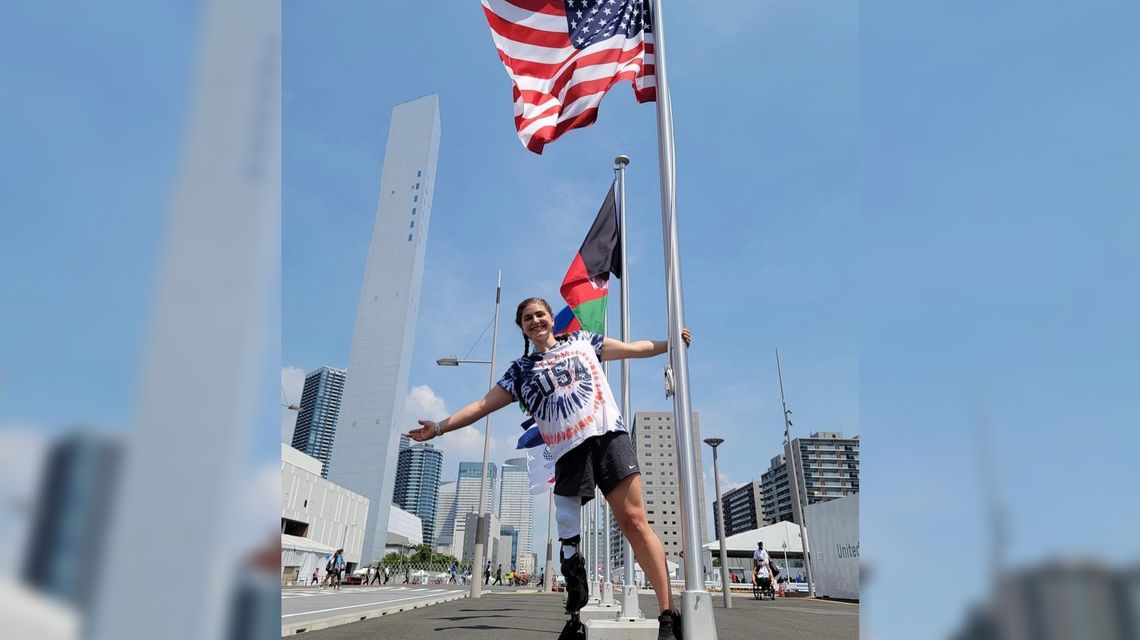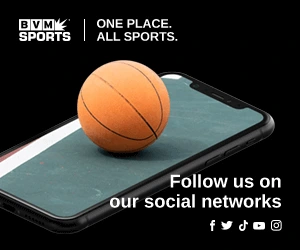
Alabama basketball star and Paralympian Bailey Moody uses Degree NIL deal to inspire
TUSCALOOSA, Ala. (BVM) – One of Degree Deodorant’s first members of the #BreakingLimits team, Paralympian and University of Alabama athlete Bailey Moody lives her life amplifying the true meaning of heart, grit and pushing past limits.
Moody, a sophomore and wheelchair basketball player at Tuscaloosa, has been faced with unimaginable hurdles throughout her young life, yet continues to add depth to her athletic resume. A U.S. women’s national wheelchair basketball team member and one-time Paralympian, Moody’s determination for greatness has never swayed, even as she lost her right leg to cancer at the age of 10.
“Before my amputation, I played everything under the sun – basketball, tennis, softball, I dabbled in lacrosse, tried soccer, swimming, everything,” Moody said. “The first question I asked my parents after my amputation was if I would be able to play sports again. They were always very honest with me and told me that I could do whatever I put my mind to, I just needed to focus on my recovery first. So that is what I did, and about eight months later, I was ready to start my journey back to the court.”
When Moody was in the fourth grade, she began to experience right knee pain which she originally contributed to growing pains or a sports injury. But her pain refused to subside and Moody was ultimately diagnosed with stage four osteosarcoma, an aggressive cancerous tumor that needed immediate treatment. Along with two stints of chemotherapy, the removal of her tumor was required, and Moody and her family decided that the best approach was a rotationplasty. This form of amputation would allow Moody to eventually maintain an active lifestyle, something that was at the top of her wish list.
“As a 10 year old, you don’t really expect to hear that you have cancer,” Moody said.”To me, old people got cancer, not young people. It was a shock and things progressed pretty quickly. Within a few days of my diagnosis, I began treatment and my life kind of flipped upside down. But I went through my chemotherapy, my amputation, and finished my final round of treatment in October or November of 2012. And as soon as I was able to get back up on my leg, the goal was to get back to sports”
Moody was soon solely focused on rehabilitation and her journey back to movement was nothing short of inspiring. She relearned how to walk and run, and within a few months, she was walking the ball down the court in her rec basketball league.
Moody continued to play able bodied basketball through seventh grade, as well as volleyball. It was in middle school that it became apparent that though she knew she had a future in basketball, she would need to make a change if she wanted to excel at the same pace as her peers.
“When seventh grade hit, it didn’t matter that I was one of the hardest workers out there,” Moody said. “When you have one leg and they have two, eventually they are going to be faster. I was working so hard to get down the court and I just couldn’t keep up. It became exhausting and frustrating to have to work so hard and still not make the strides that everyone else was.”
With this struggle at the forefront, Moody’s parents were exposed to adapted athletics and got into contact with Paralympian Lora Webster, who suffered from the same cancer and had the same rotationplasty as Moody. Webster plays sitting volleyball for the U.S. women’s national team and won a bronze, two silver and two gold medals at the 2004, 2008, 2012, 2016 and 2020 Paralympics, respectively.
“It was hard to get into the chair at first because I didn’t use a chair everyday,” Moody said. “But after hearing about the obstacles and triumphs of Lora and learning about the endless opportunities around adapted sports, I immediately found a wheelchair team to play on and I never looked back. I could keep up with everyone and it was finally an even playing field. I fell in love immediately.”
Moody made the transition from able-bodied basketball to wheelchair play look seamless and garnered an invitation to a development camp in Colorado Springs her sophomore year at Providence Christian Academy. This development camp would be the catalyst of a whirlwind chapter of Moody’s life that is still being written.
“The idea behind going to this camp was to just get my name in the pool, meet the coach and see what a national team camp was like without going straight to a tryout camp,” Moody said. “At the end of the camp, the coach asked me to try out for the national team in January and I ended up making the team for the 2018 world championship that was going to be in Hamburg, Germany that next summer. It was surreal.”
As a junior in high school, Moody played in her first international competition on Team USA. From there, she made the 2019 team that went to the Paralympic qualifiers and made the Parapan American Games in Lima, Peru where her team won silver. She went on to make the 2020 Paralympic team that was supposed to go to Tokyo in 2020, but due to COVID, was pushed to 2021. This past September in Tokyo, Moody and the U.S. women’s national team brought home the bronze medal.
“It was a wild few years,” Moody said. “Everything kind of snowballed really quickly and all of the sudden, I was part of Team USA. To start so young and have these opportunities is just amazing. It’s something I wouldn’t have been able to experience with two legs.”
It was during the media hype around her Paralympic training that Moody was contacted by Degree and signed her first NIL deal with the company. She was the first adapted athlete to join Degree’s #BreakingLimits team, something Moody will always be proud of.
“I am overwhelmed with gratitude for what I’ve been given the opportunity to do with Degree,” Moody said. “It feels so good to be an adapted athlete that is recognized alongside such high level collegiate athletes. I feel humbled. To be able to represent adapted athletes and Paralympians is a feeling that I cannot describe. I think that the conversation around adapted sports is changing, and to see Degree join in on that movement and to be a part of that is really powerful and exciting.”
As Moody continues to pursue a major in psychology as a sophomore at Alabama, she plans to work with Degree to share her story in hopes of inspiring others. Along with her #BreakingLimits team, she will focus on helping others overcome their limits to become the best athlete – and person – they can be.
“My goal is to become a sports psychologist and stay in the realm of sports,” Moody said. “Counseling was a big part of my life for a long time and I would love to be involved in athletes’ lives and help them perform on the court and work through the mental aspect of the game. And through that, I really do hope I can continue to work with Degree. Their platform and drive to inspire and help so many different people in different communities is something I can only hope to be a part of for the long run.”






